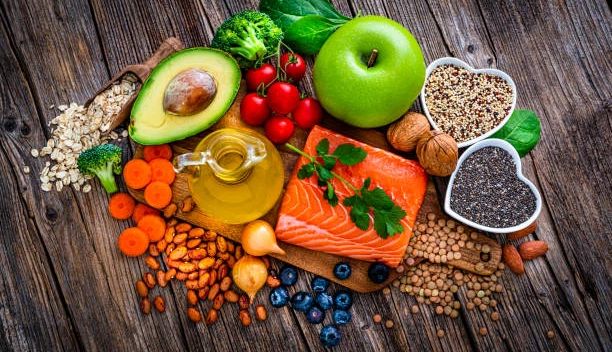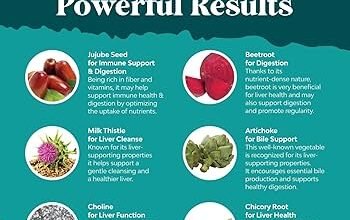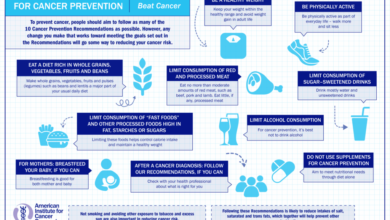6. **7 Proven Ways to Lower High Blood Pressure Naturally**
High blood pressure is a silent threat. It sneaks up on you, impacting your health without any obvious symptoms.
You might feel just fine, but the long-term consequences can be serious. The good news? You can take control of your health. No need for medication right away. Imagine feeling more energetic and less stressed, all while reducing your blood pressure naturally.
You might be asking, “How can I do this? ” The answer lies in understanding simple lifestyle changes that have a big impact. This article reveals seven proven methods to lower your blood pressure without relying on pills. Imagine the freedom and peace of mind knowing you have the power to improve your health. Keep reading to discover how these easy adjustments can lead to a healthier, happier you. Your heart will thank you.

Credit: www.aarp.org
Exercise Regularly
Exercise regularly is one of the most effective ways to manage high blood pressure naturally. Just imagine the satisfaction of knowing that your daily movement can help keep your heart healthy. It’s not just about hitting the gym; it’s about finding activities you love, that make you feel alive and energized. Whether it’s brisk walking in the park, dancing in your living room, or cycling through your neighborhood, every bit counts. But how does exercise actually benefit your heart? Let’s dive in.
Benefits Of Physical Activity
Regular exercise strengthens your heart. A stronger heart pumps blood more efficiently, reducing the force on your arteries and lowering blood pressure. Think of it as giving your heart a gentle workout to keep it fit.
Exercise helps you manage weight. Maintaining a healthy weight is crucial for blood pressure control. Even shedding a few pounds can make a noticeable difference.
Physical activity reduces stress. Stress is a silent contributor to high blood pressure. Engaging in regular exercise releases endorphins, which are natural mood lifters. You’ll feel more relaxed and less tense.
Recommended Types Of Exercise
Walking: A simple, yet powerful exercise. Aim for 30 minutes a day, even if it’s broken into shorter sessions. Walking is gentle on the joints and easy to fit into your routine.
Swimming: This is a great full-body workout. It offers cardiovascular benefits without putting stress on your joints. Dive into the pool for a refreshing way to keep your heart healthy.
Cycling: Whether indoors or outdoors, cycling boosts heart health. It’s an excellent way to improve endurance. Consider joining a local cycling group for added motivation.
Strength Training: Lifting weights helps build muscle and burn calories. It can also improve your overall metabolic rate. Start with light weights and gradually increase as you get comfortable.
Yoga: This isn’t just about stretching. Yoga combines movement and breathing to reduce stress and improve heart health. It’s a calming practice that promotes relaxation.
Now, what’s stopping you from starting today? Why not make exercise a part of your daily routine and feel the difference in your heart health?
:max_bytes(150000):strip_icc()/EW-High-Blood-Pressure-Meal-Plan-Beauty-1x1-89abd09d2d374a709b758c7a525b70ac.jpg)
Credit: www.eatingwell.com
Adopt A Heart-healthy Diet
Adopting a heart-healthy diet can significantly lower high blood pressure. Diet plays a crucial role in managing blood pressure levels. Simple changes can make a big difference. Focus on whole grains, reduce sodium intake, and increase fruits and vegetables.
Importance Of Whole Grains
Whole grains are essential for heart health. They are packed with nutrients. Fiber in whole grains helps reduce blood pressure. Choose foods like brown rice, oats, and whole wheat bread. These grains improve digestion and support heart function. Swap white bread for whole grain alternatives.
Reducing Sodium Intake
Sodium can elevate blood pressure levels. Limit processed foods to reduce sodium intake. Cook meals at home to control salt usage. Use herbs and spices for flavor instead of salt. Always check food labels for sodium content. Lowering sodium can have immediate health benefits.
Incorporating Fruits And Vegetables
Fruits and vegetables are vital for a heart-healthy diet. They offer vitamins and minerals. Potassium in fruits helps balance sodium levels. Aim for colorful fruits and vegetables daily. Berries, leafy greens, and citrus fruits are excellent choices. These foods support overall health and wellness.
Maintain A Healthy Weight
Keeping a healthy weight aids in reducing high blood pressure. Regular exercise and balanced meals promote heart health. These simple habits are essential for managing blood pressure naturally.
Maintaining a healthy weight is crucial for controlling blood pressure. Excess weight can strain the heart and blood vessels. This strain increases the risk of high blood pressure. Shedding extra pounds can significantly improve heart health. It also boosts your overall well-being.Impact Of Weight On Blood Pressure
Carrying extra weight directly affects blood pressure levels. Each pound of excess weight increases the risk. This risk can lead to hypertension, a serious health condition. Overweight individuals often experience higher blood pressure. Losing even a small amount of weight can help. It can lower blood pressure and improve heart health. Understanding the link between weight and blood pressure is essential. It motivates individuals to adopt healthier habits.Strategies For Weight Management
Adopt a balanced diet rich in fruits and vegetables. These foods are low in calories and high in nutrients. Regular physical activity is vital for weight management. Aim for at least 30 minutes of exercise most days. Choose activities you enjoy, like walking or cycling. This makes it easier to stay consistent. Monitor your weight regularly to track progress. Set realistic goals to keep yourself motivated. Seek support from friends or family. They can help you stay on track and celebrate success. Consider consulting a nutritionist for personalized advice. They can provide tailored strategies to meet your needs.
Credit: www.health.harvard.edu
Limit Alcohol Consumption
Reducing alcohol intake can help manage high blood pressure effectively. Drinking less supports healthier heart function and lowers blood pressure levels. Aim to limit consumption to improve overall health.
Limiting alcohol consumption is crucial for managing high blood pressure. Many enjoy a drink after work or at social events. Yet, alcohol can impact blood pressure levels significantly. Understanding how alcohol affects your health can guide better choices.Effects Of Alcohol On Blood Pressure
Drinking alcohol can raise blood pressure. This happens because alcohol affects the heart and blood vessels. Frequent or heavy drinking puts strain on the heart. It can lead to irregular heartbeat. Over time, this increases blood pressure. High blood pressure can cause serious health issues. It may lead to heart disease or stroke. People with hypertension should be cautious with alcohol. Even small amounts can have an impact.Guidelines For Safe Consumption
Moderation is key with alcohol. Men should limit intake to two drinks per day. Women should have no more than one drink daily. This helps keep blood pressure stable. Avoid binge drinking. It causes spikes in blood pressure. Choosing non-alcoholic options can be beneficial. Alcohol-free drinks can be enjoyed without risk. Regular check-ups with a doctor are important. They help monitor blood pressure levels. Seek professional advice on alcohol consumption. It’s vital for maintaining heart health.Manage Stress Effectively
Managing stress can significantly impact your blood pressure levels. Stress triggers a hormonal response that tightens blood vessels. This response leads to increased blood pressure. Finding ways to manage stress can help improve your heart health. It can also contribute to overall well-being.
Connection Between Stress And Hypertension
Stress and high blood pressure are closely linked. During stressful times, your body releases adrenaline. Adrenaline increases your heart rate. It also elevates blood pressure. Frequent stress can lead to long-term hypertension. This can pose serious health risks.
Relaxation Techniques
Relaxation techniques can help lower stress levels. Deep breathing is a simple method. Inhale deeply, then exhale slowly. Repeat for several minutes. This calms the mind and body.
Meditation is another effective technique. It focuses on breathing and mindfulness. Just a few minutes daily can make a difference.
Yoga combines physical movement with breathing. It relaxes muscles and reduces stress. Find a local class or follow an online guide.
Progressive muscle relaxation is useful too. Tense and release muscles, starting from your toes. Move upwards, one muscle group at a time. This helps relax the entire body.
Listening to music can also soothe your mind. Choose calming tunes. Spend a few minutes each day enjoying music. It can significantly reduce stress.
Quit Smoking
Quitting smoking can help lower high blood pressure. Smoking damages blood vessels and increases heart rate. Reducing nicotine intake improves heart health and supports better blood circulation.
Quitting smoking can significantly improve heart health. It’s a crucial step in lowering high blood pressure. Smoking affects your cardiovascular system in harmful ways. Many people don’t realize the impact smoking has on blood pressure. Understanding these effects can motivate change. Let’s explore how smoking affects blood pressure. Then, learn steps to stop this harmful habit.How Smoking Affects Blood Pressure
Smoking narrows the blood vessels. This increases the heart’s workload. Nicotine, found in cigarettes, raises blood pressure. It also spikes heart rate. Each cigarette damages the arteries. Over time, these effects build up. The heart struggles more and more. Smoking also reduces oxygen flow. The heart must pump harder to compensate. This constant strain leads to high blood pressure. The chemicals in tobacco harm the blood vessel lining. This damage can lead to heart disease. Quitting smoking can reverse many of these effects. It improves heart health and lowers blood pressure.Steps To Stop Smoking
Set a quit date. Choose a day within the next two weeks. Tell friends and family about your plan. Their support can help you succeed. Remove cigarettes, lighters, and ashtrays from your home. Identify triggers that make you want to smoke. Avoid situations or habits that lead to smoking. Try nicotine replacement therapy. Consider patches, gum, or lozenges. These can help reduce withdrawal symptoms. Join a support group. Sharing experiences can provide motivation. Practice stress-relief techniques. Deep breathing or meditation can help. Reward yourself for milestones. Celebrate each smoke-free week or month. Focus on the benefits of quitting. Improved health and energy are great motivators.Monitor Blood Pressure Regularly
Regularly checking blood pressure helps in managing and lowering high blood pressure naturally. Keep track to adjust lifestyle choices effectively. Monitoring aids in identifying triggers and making informed decisions for better heart health.
Monitoring your blood pressure regularly is one of the simplest yet most effective ways to manage high blood pressure. It can help you understand your body better and make informed decisions about your health. Regular checks can catch fluctuations early, allowing you to take timely actions to prevent complications.Importance Of Regular Checks
Keeping track of your blood pressure can be a game-changer. It provides you with a clear picture of how your lifestyle choices affect your heart health. You might find that a stressful week at work spikes your numbers or that a walk in the park brings them down. Regular monitoring can also help your doctor tailor the right plan for you. They can identify trends and potential triggers that you might overlook. Don’t wait for your annual check-up; knowing your numbers is empowering. Think about it: If you knew a simple habit could potentially save your life, wouldn’t you commit to it?Using Home Blood Pressure Monitors
Home blood pressure monitors are more accessible and affordable than ever. They allow you to keep tabs on your health from the comfort of your living room. This is especially useful if visiting a doctor frequently isn’t feasible for you. Choose a monitor that’s easy to use and fits your arm comfortably. Accuracy is crucial, so look for devices validated by health organizations. Read customer reviews to get a sense of reliability. When I started using a home monitor, I was shocked to see how different my readings were at home compared to the doctor’s office. It turned out my nerves at the clinic were skewing the results. Having a monitor at home gave me peace of mind and a sense of control. Have you tried measuring your blood pressure at home yet? It might reveal insights you never expected. Remember, knowledge is power. The more you know about your health, the better choices you can make. So, why not start today by checking your blood pressure regularly?Frequently Asked Questions
What Is The Fastest Way To Lower Blood Pressure Without Medication?
Exercise regularly, reduce sodium intake, and manage stress to quickly lower blood pressure. Eat potassium-rich foods and stay hydrated. Practice deep breathing and relaxation techniques. Limit alcohol and caffeine consumption for better results.
What Is The 60 Second Trick To Lower Blood Pressure?
Take slow, deep breaths for 60 seconds. This calms the nervous system and reduces stress, lowering blood pressure.
What Lowers High Blood Pressure Immediately?
To lower high blood pressure immediately, try deep breathing exercises or meditation. Drink a glass of water. Reduce stress by taking a short walk. Limit salt intake and avoid caffeine. Consult a healthcare professional for medication if necessary. Always seek medical advice for severe cases.
What Drink Reduces Blood Pressure?
Drinking hibiscus tea can help reduce blood pressure. Rich in antioxidants, it supports heart health and lowers hypertension. Regular consumption may lead to improved cardiovascular function. Consult a healthcare professional before making dietary changes for blood pressure management.
Conclusion
Lowering blood pressure can be natural and effective. Small changes make a big difference. Eat healthy foods like fruits and vegetables. Stay active with daily exercise. Manage stress with deep breathing or meditation. Limit alcohol and quit smoking for better health.
Check your progress regularly. Consult a doctor if needed. These steps help maintain a healthy lifestyle. You can control blood pressure without medication. Stay committed for long-term benefits. Your heart will thank you.



